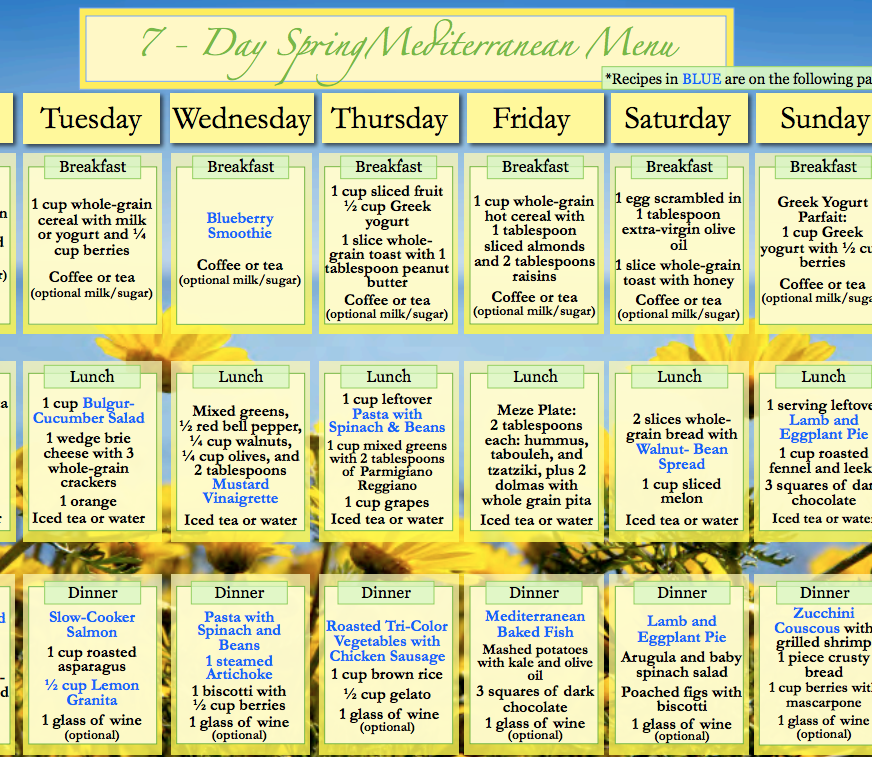
It is a great way to increase metabolism by eating the right foods. It can be hard to make the right food choices. Media can often present conflicting messages regarding which food groups should be preferred. Fortunately, there are plenty of foods that boost metabolism. You can improve your metabolism naturally by reading the following. Below are some suggestions for foods you should add to your diet. You should also drink plenty of water, add more fiber to your diet, and exercise regularly.
Protein-rich foods
Increase your metabolism by eating protein-rich food. Consuming more protein can increase your metabolism by several hours. Proteins have more calories that carbohydrates, so you will need more energy just to digest them. An average intake of four to six ounces per day of protein with complex carbohydrates, vegetables, and healthy oils is a good guideline. You can improve your metabolism by eating protein-rich meals on a regular basis.

Exercise
The research on whether exercise boosts metabolism has been largely conflicting. The idea that exercise may increase metabolic rate in short, intense bursts has been supported. This is a result of a study with 16 healthy young males. While the study did note that exercise can boost metabolism, it did not extend its follow-up period beyond two weeks. Therefore, it is premature to conclude that exercise is beneficial for general and metabolic health as well as cardiovascular risk. More research is needed, including a more diverse group of people and a longer time frame.
Drinking cold water
There are many health benefits to drinking cold water, which go well beyond the thirst-quenching one. Drinking cold water will increase your metabolism, allowing you to burn more calories and reduce the energy needed to heat it up. The Centers for Disease Control(CDC) says that one cup at just below freezing has the thermogenic value of approximately one plain M&M. It is important to drink enough water to maintain a healthy metabolism.
Add more fiber to your daily diet
Adding more fiber to your daily diet boosts your metabolism by increasing your satiation. This can help with weight loss as you will feel fuller if you eat less sugar. It is a great way to increase your fiber intake to choose fruits with high fiber content like passionfruit. Guavas are another fruit rich in fiber. Drink prune juice or whole fruits if you prefer to consume your fruit in liquid form.
Warm water with half of a lemon or whole lime
It's not uncommon for people to drink lime water during flu season. This fruit has a high amount of vitamin A, which aids in fighting off illness. It has antioxidant properties which can help lower cholesterol and improve your immune function. Limewater's acidity helps digestion and stimulates bowel function. For heartburn sufferers, lime water can be recommended 30 minutes prior to your meal. This will help soothe the burning sensation.

Eating after dinner
How you eat can impact how fast fat is burned. Research shows that eating late at night reduces fat burning by 10 percent. Eating too late may also result in weight gain, as you don't have the energy to do things that require energy. You can decide whether eating after dinner boosts or decreases your metabolism. This article will cover some of the pros and cons of eating after dinner.
FAQ
What is the best time to do Intermittent fasting in order to lose weight
The answer is not as simple as you might think. A number of factors need to be considered when determining how many days of fasting are needed for optimal fat loss. These are:
-
Your age. For example, if you're young (under 40), intermittent fasting may be too difficult for you because you have less time to recover from each day's fast. However, intermittent fasting may be too difficult for older people (over 60) who might not have the energy to continue a long period of daily fasting.
-
Your current body composition. If you already have a lot of muscle mass, you'll likely benefit most from longer periods of fasting. If you don't have a lot of muscle mass, shorter fasting periods may be more suitable.
-
How active you are. Exercise regularly and you may need to extend the fasting window in order to get enough sleep between workouts.
-
Your health history. Some people with medical conditions like diabetes, heart disease, cancer, etc., may require additional fasting monitoring.
-
How do stress and anxiety affect you? Stressful situations can make us eat more. You may need to extend your fasting times in order to avoid this problem.
-
The type of diet you follow. Certain diets, like ketogenic diets, may require even longer fasting periods.
-
The quality of sleep you receive. Insufficient sleep has been associated with decreased metabolism and increased appetite. Therefore, it may take some experimentation before determining what works best for you.
-
The amount of protein you consume. The ability to stabilize blood sugar levels. Eating more protein can lead to lower insulin levels. This would allow you be more consistent in your fasting.
-
It doesn't matter if you want to gain or lose fat, those who are trying for weight gain will often require longer fasting periods.
-
What percent of your daily calories are you consuming during your fasting time? You may lose more weight if you eat fewer calories each day than if you eat more.
-
Your fitness level. The metabolic rate of fast people who are fit is higher, which means they burn more calories each day.
-
Your gender. Men typically have larger appetites than women, so they may need to fast for slightly longer periods of time. Women have smaller appetites than men, so they may need to fast just 20-30 minutes each day.
-
Your lifestyle. Are you someone who is active? Do you do a lot of exercise each week? Does your job involve sitting at a desk all day long? All these factors can have an impact on how much time you should speed.
-
How much money do you spend on food? Healthy eating doesn't mean you have to spend a lot on groceries. It's possible to save money by purchasing whole grains rather than white bread, fruit instead of candy bars, lean meats instead fatty cuts, and fruits instead of candy.
-
It is vital that you control your hunger. You don't have to skip meals if you don’t want to.
Does intermittent fasting affect my sleep?
Yes, intermittent fasting can impact your sleep. If you skip meals, your hunger hormones will increase. As a result, you may find yourself waking up at night.
Experts recommend skipping breakfast. Instead, experts suggest eating a light snack just before bed.
If you still feel hungry after eating this snack, you may want to eat a small breakfast before going to bed.
Don't overeat. Otherwise, you'll end up gaining weight instead of losing it.
How do I create an exercise routine?
It is important to establish a routine. You should know what you will do each week and how long. This helps you plan and prevents procrastination.
A second important thing to do is ensure you have lots of variety when it comes to your exercise routine. Exercise shouldn't be boring. Otherwise, you'll lose motivation.
It is important to track your progress. It's crucial to track your weight changes over time.
It is easy to lose motivation after you have lost weight. On the other hand, if you gain too much weight, it becomes harder to stay motivated.
You should find a balance between weight gain and weight loss. If you are unhappy about where you are, it will make you less likely to exercise.
What Weight Loss Can You Expect In One Week?
Your current bodyfat percentage determines the amount of weight you will be able to lose. You need to determine how much weight loss you are looking for. Your BMI will tell you how much weight to lose. If your BMI is 25 or greater, you're overweight. If your BMI is more than 30, you are obese.
For example, let's say you have a BMI of 28.7 and are 200 pounds. This would mean that you'd have to lose about 70 pounds in order to reach a healthy weight. To see if you're overweight, visit www.healthyminds.com/bmi/.
This formula can be used to calculate how many pounds you will lose each week once you have determined your BMI.
(Your Goal Weight - Current Weight)/BMI * 7 Number Of Pounds Lost Per Week
For 50 pounds to be lost in one month, it would take 2 weeks of exercise. 56 days is equivalent to 7 pounds per day. That's 8.3 pounds per week.
You could also try this calculator from www.weightlosscalculator.net. It gives you a rough estimate of how many calories you should eat daily to lose 1 pound per week.
Are there any side effects to intermittent fasting
Intermittent fasting doesn't have any known side effect. If you don't plan well, you may experience minor issues.
If you skip breakfast, for example, you may feel constantly irritable. Headaches, dizziness, fatigue and muscle cramps are all possible.
These symptoms typically disappear in a matter of days.
Statistics
- It's estimated that half of all American adults attempt to lose weight every year (1Trusted (healthline.com)
- According to Harvard Health, it's estimated that a 155-pound (70-kg) person burns around 167 calories per 30 minutes of walking at a moderate pace of 4 mph (6.4 km/h) (5). (healthline.com)
- Among women, the increase in metabolic rate was nearly 4%, or 50 more calories per day (14Trusted Source (healthline.com)
- One 6-month study showed that simply doing 11 minutes of strength-based exercises 3 times per week resulted in a 7.4% increase in metabolic rate, on average. (healthline.com)
External Links
How To
How to lose weight fast and not need to exercise
The best way to lose weight fast without exercise is to eat fewer calories than you burn. This will cause your body to start burning fat stores for energy. You will see some muscle shrinkage if your body doesn't consume enough calories. Although you can lose weight even if you aren't working out, it's likely that you'll lose more muscle mass.
To lose weight quickly and without exercising, you need to cut down on your calorie intake. It is common for people to believe that they must cut down on their food intake in an effort to lose weight. If you are looking to lose weight, it is important to consume fewer calories per day than you burn. How much should you consume each day? It depends on how much you exercise each day. For example, a runner who walks 3 to 5 miles per day would only require 2,500 calories daily. One who sits at the desk all day would require 1,600 calories daily. For someone who exercises often (e.g. lifting weights), the daily intake would be around 1,600 calories.
When you want lose weight, it is important to cut down on your caloric intake. Many people believe they should consume less food, as they feel they are starving. This is not true. Your body doesn’t care what you eat; it wants to function properly. Tracking your calorie intake is key to losing weight. Many apps are available online that can help you monitor your calorie intake. MyFitnessPal (Calorie Counter), and LoseIt are just a few of the many apps available online.